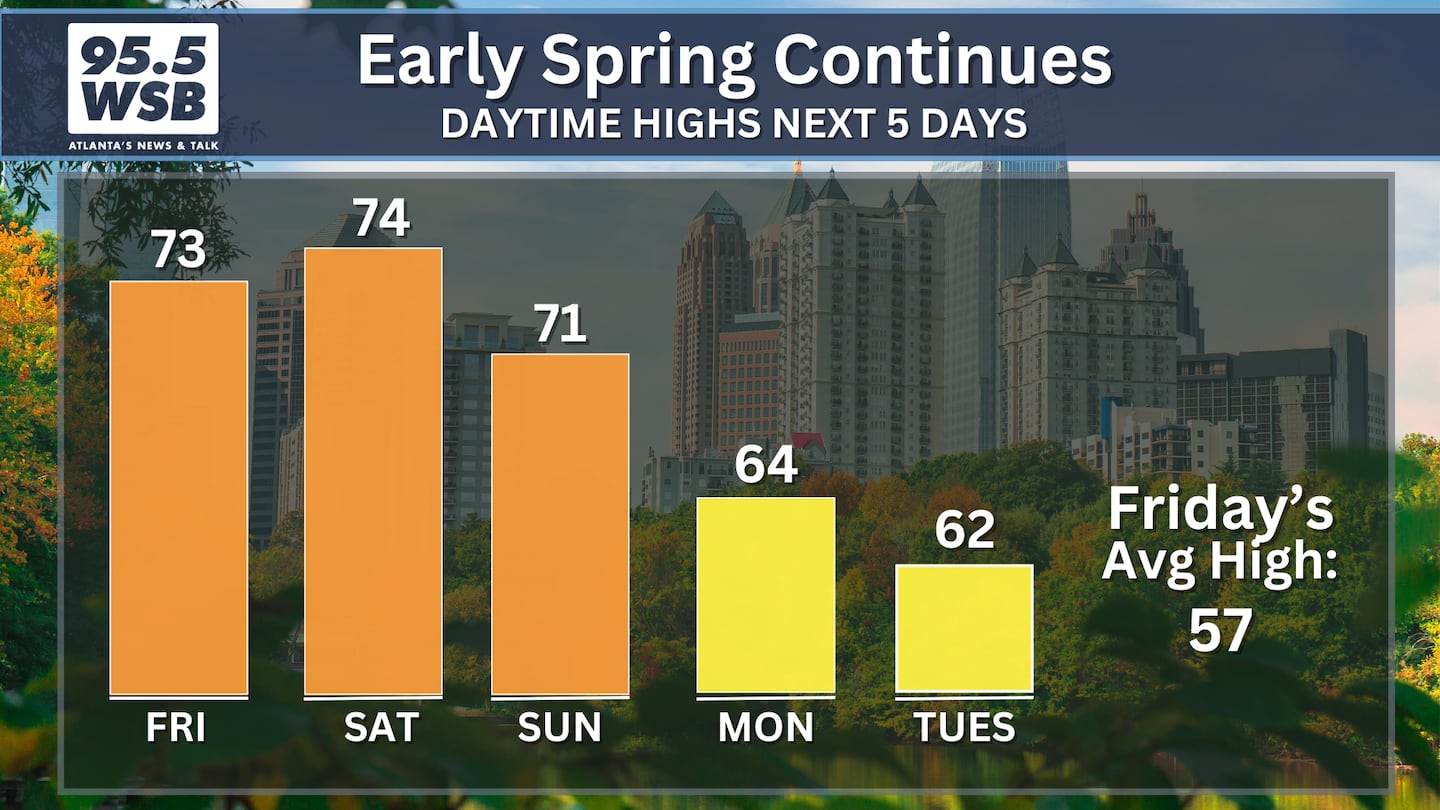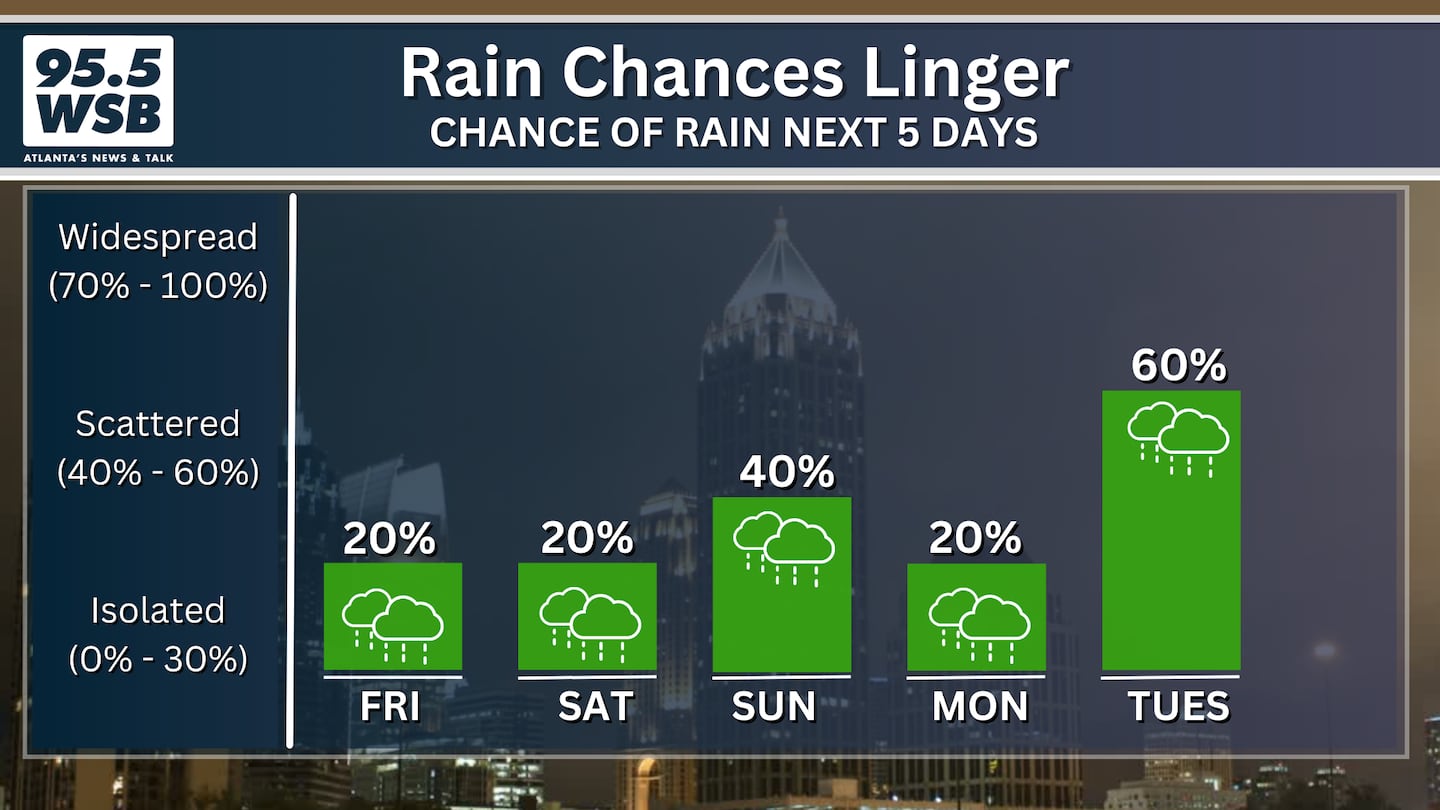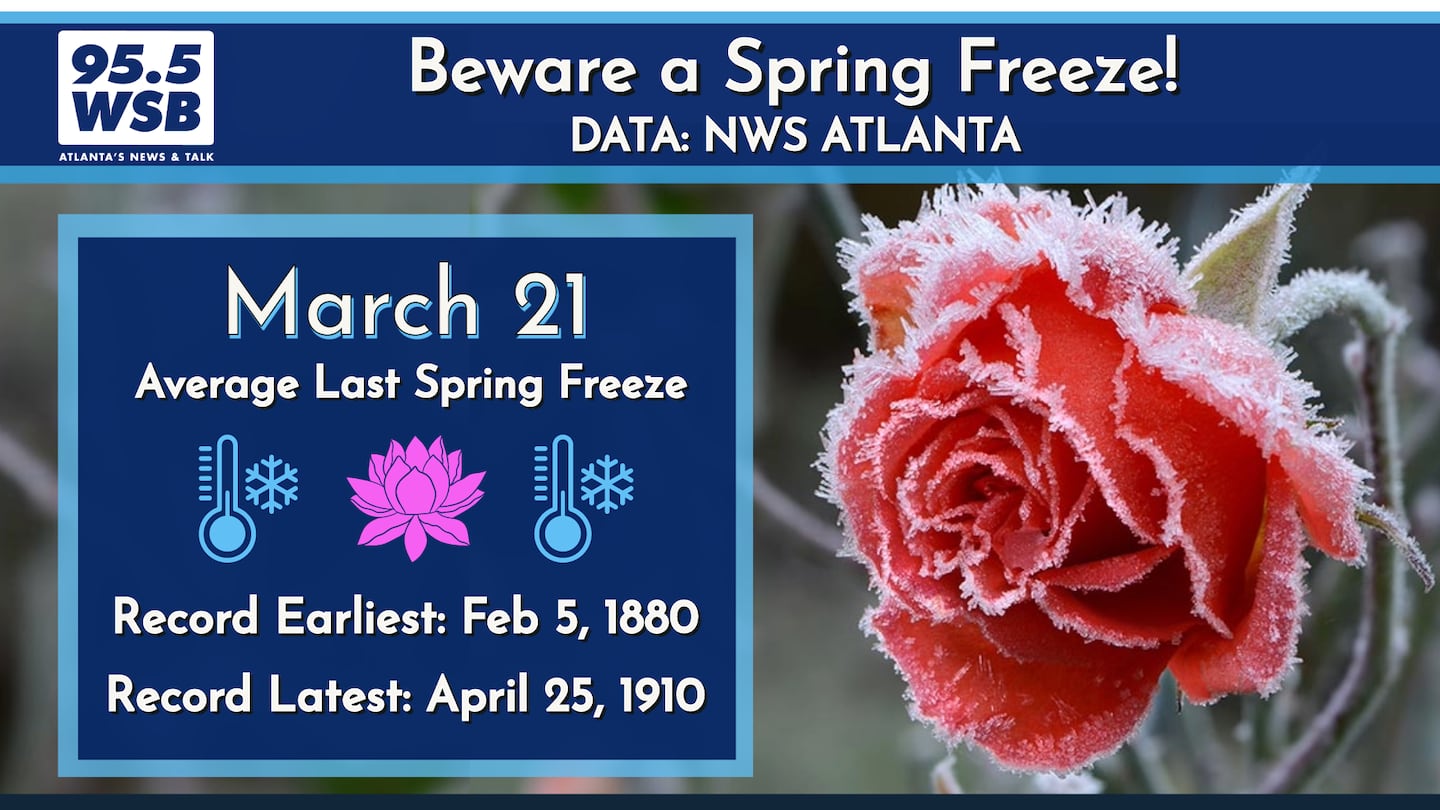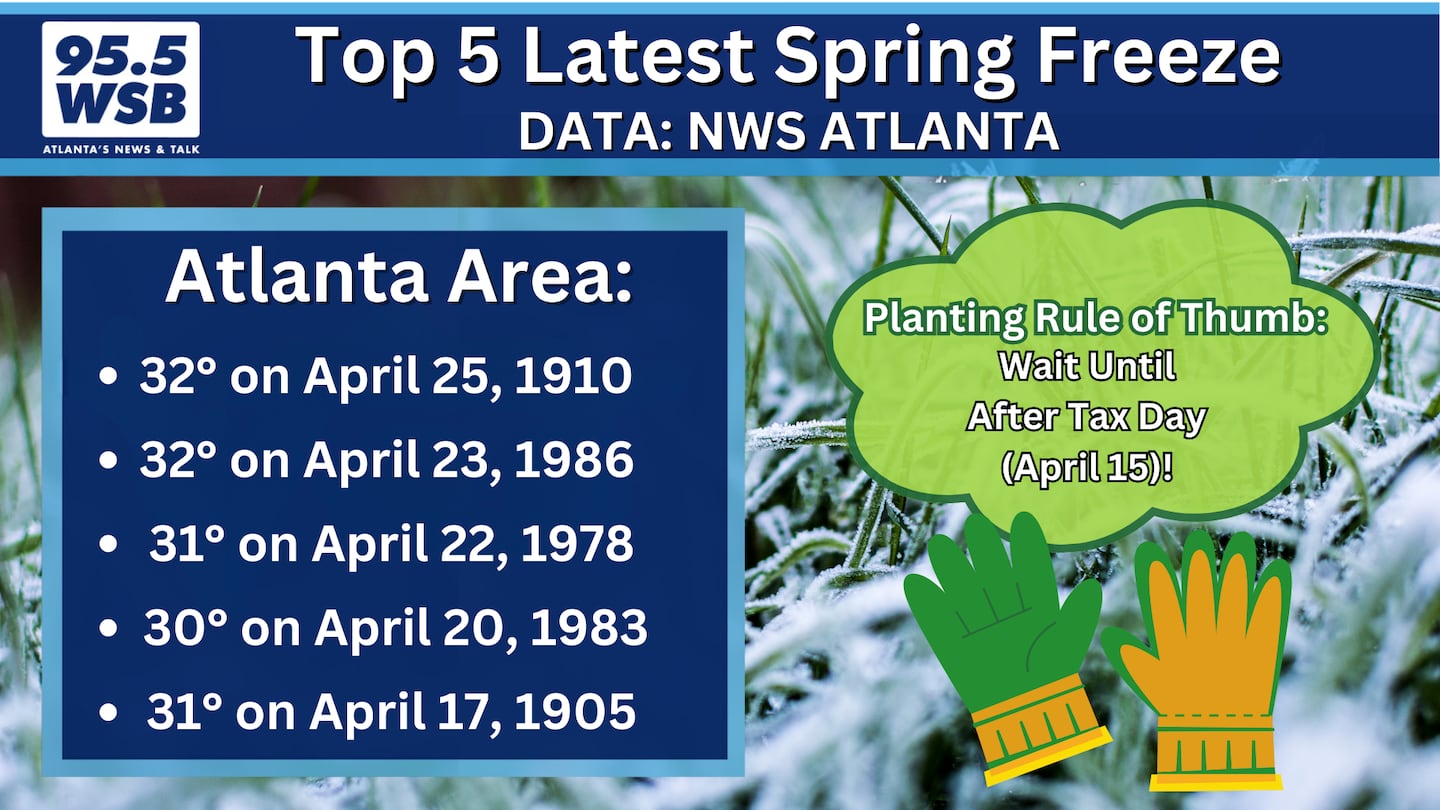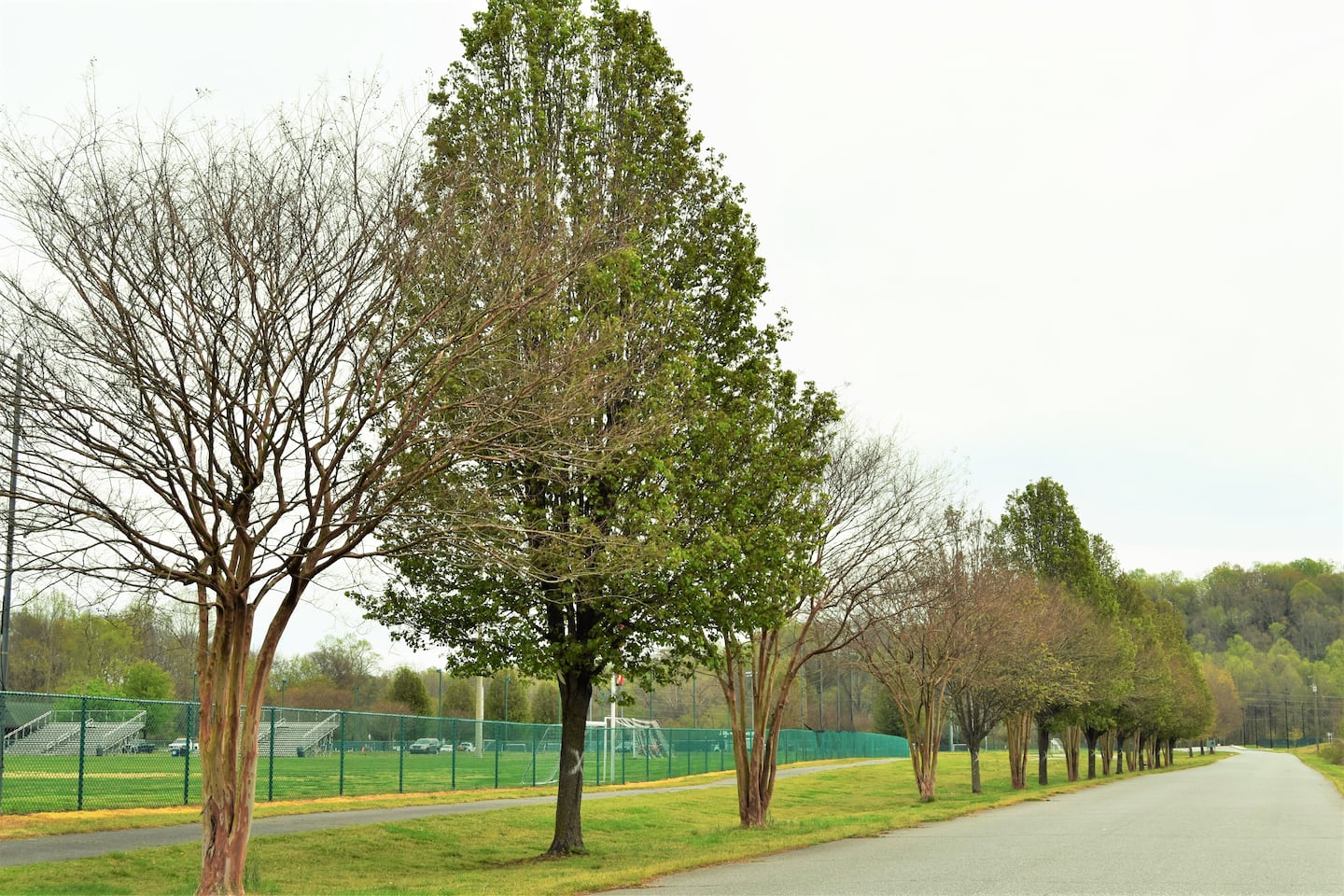What a wild temperature swing from January to February!
After spending 66 hours below freezing in late January, the first week of February 2025 featured temperatures in the mid to upper 70s.
If it feels like “early spring” lately, that’s because you are right! Afternoon temperatures in the 70s are on par for the average high temperatures for early April -- a full two months ahead of schedule!
Averaging it out, temperatures are trending about 15 degrees above average for the first several days of February.
Looking ahead to the weekend and next week, the “early spring” will continue.
Afternoon temperatures will remain in the 70s for Friday and Saturday, prompting the desire to dig in the yard and prep the spring garden. In addition to the warmth, humid conditions will also prevail, with a few spotty rain showers off and on through the course of Friday and Saturday.
However, a cold front will move through Metro Atlanta Sunday morning, sparking scattered rain showers throughout the region. Behind the cold front, cooler temperatures will move in -- although “cool” is relative!
Expect a 10-degree drop from the 70s this weekend to the 60s for next week, however these temperatures will still be 5 to 10 degrees above average. Morning lows will drop from the 60s into the 40s and 50s through next week.
What is notable is that the rain chances will increase through the end of next week, with multiple rounds of rain moving through the Metro region Tuesday through Thursday.
The amount of rainfall will adjust heading into next weekend, but it is possible that as much as 2 to 4 inches of rainfall is possible through next weekend.
“Wait to Plant Until After Easter”
While a freezing cold snap is not in the forecast for the next 10 days, do be careful what you plant in the garden!
Spring temperatures in Atlanta are highly variable, and a wise gardener should always note which plants are more cold hardy versus the tender during a cold snap.
The old adage “wait to plant until Easter” is usually good advice, however Easter’s calendar date varies year after year -- and some years, it is as early as March 23!
That lines up with the average last spring freeze date for the Atlanta area, but the latest freeze on record did occur on April 25, 1910.
With that said, the majority of the killing freezes should be done before April 15, which is Tax Day -- so perhaps that is the better “rule of thumb” date!
Why the extra caution around the spring freeze?
Often, temperatures will swell in February and March before crashing in early April. This happened in 2007 when temperatures trended well above average in March before crashing into the low to mid 20s in early April.
The April 6-9, 2007 killing freeze arrived just in time for the Easter holiday, when temperatures dropped into the mid 20s as far south as Middle Georgia.
According to NOAA, the Easter 2007 freeze resulted in a state-wide agricultural production value loss of $257.5 million, with peaches, blueberries and apples experiencing the most freeze damage.
Green and Growing Gardening Advice for Spring 2025
I spoke with Ashley Frasca, host of Green and Growing on 95.5 WSB regarding some of the most common mistakes Georgia gardeners make when selecting plants for the garden.
Q: There are a lot of different species we can put in the ground, but we need to be aware -- as Georgia growers and gardeners -- what may or may not be a good “citizen” to put in the garden?
A: So we have our native plants, which we absolutely love. Those are very inviting to our native insects and our native birds -- but you don’t have to have a landscape with all native plants.
You can also have plants that are pretty and trendy.
But there is a difference between something that is invasive -- something that is maybe from the Asian continent or the European continent that was brought over here that doesn’t do well here.
There’s also things that are aggressive -- we like our mints, we like our milkweeds.
But some of them spread, so they are not invasive, they are just aggressive.
And then we have plants that are just nuisance plants -- you could pick something better.
Q: Like the Bradford Pear! Who brought the Bradford Pear to Metro Atlanta?! It smells awful, and apparently, during wind storms even during just a normal summer thunderstorm -- it knocks over because the branches can’t handle it.
A: Calgary Pear, Bradford Pear, they are very weak-structured trees, multi-trunked trees. With a lot of the weight, they can split in a storm. They can drop branches and they can shed a lot of leaves.
Not only the smell, but they are not native to Georgia. They aren’t very inviting for any insects to overwinter or for birds to make nests.
One of the really fascinating things about Bradford Pear, and we’re getting some movement on that tree here in Georgia -- South Carolina actually introduced a few years ago a bounty program where South Carolina citizens can turn in and prove to the government that they dug them up and they will give you a replacement plant that’s just a much better solution as a tree in your landscape.
If we could get that traction here in the Georgia area, I think that would be fantastic.
They were over-planted and used by builders way too often in the late 80s and the early 90s.
Share Your Temperature Reports With Me!
Facebook: Christina Edwards WSB
Instagram: ChristinaWSBwx
Twitter: @ChristinaWSBwx
TikTok: @ChristinaEdwards955WSB
©2025 Cox Media Group


